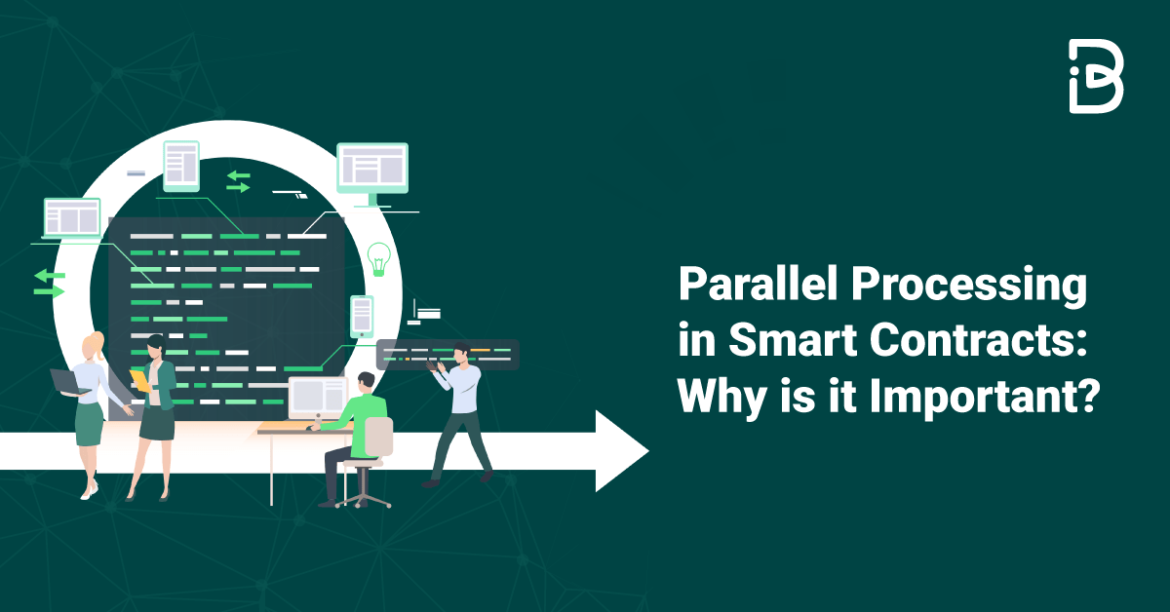Blockchain and decentralized systems have made considerable progress in a very short time. Developers and organizations have left no stone unturned to make this innovation a big hit. And now, not only tech geeks but most of the general public is also aware of the concept, which is a massive step toward the dream of global decentralization.
Apart from cryptocurrencies, another concept that has the spotlight is smart contracts.
Smart contracts are nothing but computer programs stored on a blockchain that run when predetermined conditions are met. They are used to automate the execution of an agreement so that all the participants can immediately be certain of the outcome, without intermediary or time lag.
Modern cryptocurrency systems and decentralized tokens employ smart contracts to operate. Smart contracts essentially give them the ability to be decentralized.
Now that you understand how important smart contracts are, let’s see what challenges they face and how parallel processing can be the solution!
Challenges Faced by Smart Contracts Today
Table of Contents
Cryptocurrency systems like Ethereum allow complex financial transactions via smart contracts. These smart contracts are executed many, many times, always without real concurrency. How? Let’s see.
- First, all smart contracts are serially executed by miners before appending them to the blockchain.
- Later, those contracts are serially re-executed by validators to verify that the smart contracts were executed correctly by miners.
Where Does The Problem Arise?
The major performance issues in smart contracts, but not limited, are:
- throughput bottleneck
- limited scalability
- transactions latency
Serial execution limits system throughput and fails to exploit today’s concurrent multicore and cluster architectures. Smart contracts have a low performance of transaction processing on the blockchain. In some situations, it is even incapable of satisfying real-time requirements.
So, we know the problem. What about the solution? We have that too!
What does Parallel Processing Do?
Parallel processing, as the name suggests, is a novel way to permit miners to execute smart contracts in parallel, based on techniques adapted from software transactional memory.
This way of execution greatly impacts the performance of a smart contract and increases its execution efficiency.
How does Parallel Processing Work?
One can exploit multi-core architectures to increase smart contract processing throughput for both miners and validators.
First, miners execute a block’s contracts speculatively and in parallel, resulting in lower latency whenever the block’s contracts lack data conflicts. Miners are incentivized to include in each block, an encoding of the serializable parallel schedule that produced that block. Validators convert that schedule into a deterministic, parallel fork-join program that allows them to validate the block in parallel.
Solana’s Sealevel
Solana is capable of processing more than 50K transactions per second, which is way faster compared to any other blockchain existing at the moment.
Solana uses Sealevel to execute smart contracts that can run in parallel.

The reason why Solana is able to process transactions in parallel is that Solana transactions describe all the states a transaction will read or write while executing. This not only allows for non-overlapping transactions to execute concurrently but also for transactions that are only reading the same state to execute concurrently as well.
On Solana, each instruction tells the VM which accounts it wants to read and write ahead of time. This is the root of the optimizations to the VM.
- Sort millions of pending transactions.
- Schedule all the non-overlapping transactions in parallel.
This system also allows similar smart contracts to leverage the same protocols. This strategy implies that thousands of smart contracts can run simultaneously and in parallel without slowing down the network’s performance.
Final Thoughts
While parallel transactions can help, they come with many concerns. Indeed, concurrent executions should not alter the semantics of the blockchain and should be equivalent to sequential executions, only faster.
While implementing such newer solutions and concepts, security should be a paramount consideration. Every initiative comes with a big risk, one must get their smart contract audit done and formally verified by a third party to avoid any such mishaps!
Parallel execution of smart contracts is a promising solution to all the challenges currently faced by them. If implemented correctly, it can solve scalability issues and even optimize its performance.
About Us
ImmuneBytes is facilitating blockchain security audits by employing the use of cutting-edge techniques on smart contracts and decentralized applications. We have a team of experienced security professionals who are adept at their niches and provide you with innovative solutions and consultation. So far we have worked on 175+ blockchain start-ups on different blockchain frameworks, with clients spread across the globe, and are continually unfolding ourselves to make this decentralized movement thrive.

